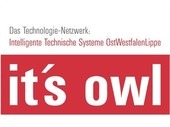Validierung von Steuerungscode mit Hilfe automatisch generierter Simulationsmodelle
Virtual commissioning (VC) is used to test control code deployed on Programmable Logical Controllers. Simulation models of a plant are the core of any VC approach. Simulation models should represent the plant in a way so that the correct process execution can be tested under customers’ conditions. Simulation models of a plant are usually not built monolithically, but by many partial simulation models that represent the modules or components of the investigated plant. To ensure that the VC is efficient and provides helpful results, these partial simulation models can be implemented at different levels of detail, depending on the current test scenario. Usually, the definition of the modules’ and components’ level of detail is fixed. However, situations exist where more than one level of detail can be adequate. A dynamically adaptable level of detail seems beneficial to e. g. keep computing time at a reasonable level and to ensure meaningful results of the plants simulation model. However, no method or approach exists so far to handle a dynamically adaptable level of detail. This paper discusses potentials and challenges of a dynamically adaptable level of detail and shows possible solution contributions that could yield benefits for a VC approach.




























































